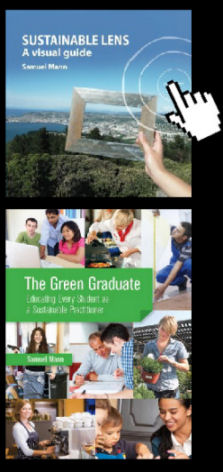 It is hard to go far in the sustainability world before you hit ideas of participation. Kurt Luther presented an interesting development in this field at CHI recently. In a paper entitled “Pathfinder: An Online Collaboration Environment for Citizen Scientists” he (and others) examined computer support for citizen science.
It is hard to go far in the sustainability world before you hit ideas of participation. Kurt Luther presented an interesting development in this field at CHI recently. In a paper entitled “Pathfinder: An Online Collaboration Environment for Citizen Scientists” he (and others) examined computer support for citizen science.
Inspired by the Christmas Bird Count, citizen science has the dual goal of a contribution to data collection and to engage the public in the scientific process. While the first goal is easy to measure, the nature and benefits of the latter are somewhat harder. Particularly tricky is how much are people involved in the whole scientific process – beyond observation and data collection?
Luther and colleagues created a tool with the specific intention of facilitating involvement in other parts of the scientific process. This provided more integrated toolsets: users can embed interactive graphs, take feeds from external data sets, saving “findings” and so on.
Pathfinder is an online community where citizen scientists can collaboratively track and discuss data sets related to sustainability, transportation, and commuting issues. There are two main components to Pathfinder: tracks (our name for data sets) and discussions.
The research question this leads to, is whether people would actually want to engage more deeply in this way. A control system was used for comparison – essentially a wiki.
Users did use the components of the system designed to facilitate engagement in the science process (milestones, tracks, predictions)
we also noted that some people became very involved with the data and contributed even more sophisticated data analyses than we proposed
All but one of the participants preferred the Pathfinder system. In a quantitative study, comprehension was improved, but not speed or accuracy in answering questions about the subject area. Despite this, participants felt more confident in their answers.
In using the Pathfinder system, participants used the milestones and embedded tracks. To achieve the same on the standard wiki they were forced to open multiple browser tabs (hey I have 12 open now).
By focussing on the reasons why people might engage in different aspects of the science process, the authors where able to develop tools that encouraged participation in each stage, but the nature of use was quite complex. For example, they noted that authorship and attribution are important incentives for scientists to conduct original research. Thus, to motivate citizen scientists, they allowed users to exert authorship by embedding their signatures in the discussion responses with the click of a button. Strangely, though, few used this feature, which led to some interesting observations from the authors:
This lack of attribution had an equally surprising effect on the way users participated in discussions. We expected users to reorganize the discussion responses and possibly improve their own responses, but instead, users were ruthless in changing others’ responses and even deleting them when they deemed them of little value. Thus, discussions never got very long, but they changed rapidly and substantially. Unfortunately, these changes were not apparent to most users, resulting in some rather circuitous discussions. Users also remarked that the discussions seemed less active than they actually were.
If citizen science is to progress beyond the historical characterisation of “citizens collecting data and scientists analyzing it”, then more work is needed along the lines of this work. In this project citizen scientists were willing and able to contribute data to such an online community and even begin participating in collaborative discussions. Novel features like milestones and overviews to help newcomers get involved these discussions. The authors have posed some intriguing questions and there are still many opportunities for improvement.

Posted on May 5, 2009
0